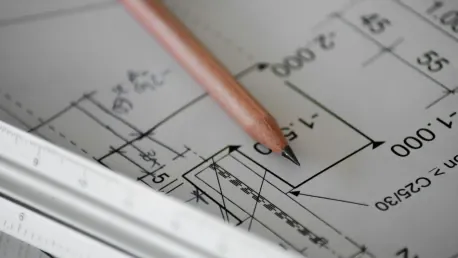A significant legal dispute has culminated in a federal judge ordering a joint venture (JV) between Flatiron and AECOM Technical Services to pay $14.2 million to AECOM Technical Services. This ruling comes after a protracted litigation process, which was deemed by the judge as bordering on the absurd, stemming from prolonged disagreements over project costs and delays. The case has spotlighted the importance of clear agreements and effective problem-solving mechanisms within the construction industry.
Origins of the Project and Initial Conflict
Project Overview
The C-470 Express Lanes project, initially valued at $276 million, was commissioned by the Colorado Department of Transportation (DOT) and broke ground in 2016. The project aimed to enhance the transportation infrastructure in Colorado, with the primary contractors for the design-build initiative being Broomfield-based Flatiron and Dallas-based AECOM Technical Services. In this collaboration, AECOM served as the lead designer, responsible for creating the initial designs and plans necessary to kickstart the project.
Escalation of Costs and Delays
Despite the ambitious start, the project soon encountered significant hurdles. Over time, the C-470 project’s costs escalated dramatically, far exceeding the originally projected amounts. While the initial budget was set at $204 million and was later amended to $237 million to accommodate change orders, the total expenditure ballooned to over $502 million. These cost overruns were coupled with substantial delays in the project timeline, sparking heated debates and disagreements between the joint venture partners regarding who was responsible for the additional expenses and missed deadlines.
Legal Dispute and Court Rulings
Lawsuit and Counterclaims
The growing tensions eventually led to legal action. In October 2019, AECOM Technical Services filed a lawsuit against the Flatiron/AECOM JV, alleging breach of contract and unjust enrichment. The lawsuit sought $5.3 million for unpaid out-of-scope design services that AECOM claimed it had provided. In response, the JV filed counterclaims, accusing AECOM of breaching the teaming agreement, making negligent misrepresentations, and breaching the subcontract. The JV’s counterclaims were ambitious, seeking $263.5 million to recover expenses and delays, which they attributed to what they claimed were faulty preliminary design documents provided by AECOM.
Trial and Motion
The legal dispute continued to escalate, ultimately leading to a trial set for February 2024. Jury adjudication was anticipated to resolve the matter. In the final days leading up to the trial, the JV made an unexpected move, proposing to pay AECOM the requested amount while attempting to switch roles and become the plaintiff in the case. However, this motion was met with a sharp rebuke from the judge, who described it as bordering on the absurd and refused to dismiss the claim for unjust enrichment. This denial solidified the need for the jury trial to proceed as planned.
Jury Verdict and Subsequent Proceedings
Jury’s Decision
Ultimately, the trial concluded with a jury verdict favoring AECOM Technical Services. The jury awarded AECOM $5.26 million for the unpaid design services it claimed were due but rejected the counterclaims from the Flatiron/AECOM JV. This marked a significant victory for AECOM, although the subsequent efforts to reach a settlement did not succeed. Consequently, AECOM sought to recover its legal fees, citing the extensive costs incurred through the prolonged litigation process.
Award of Legal Fees
In a follow-up ruling, the court granted AECOM $8.3 million for attorney costs and an additional $5.9 million for expert witness and other expenses, reducing the initial $16 million sought. This award aimed to compensate AECOM for the significant financial burden the litigation had placed on the company. The reduction from the initial amount sought did not diminish the importance of the ruling, which further highlighted the substantial resources required to navigate such complex and extended legal battles.
Industry Implications and Takeaways
Lessons for Stakeholders
This lawsuit underscores several critical themes within the construction industry. One of the foremost lessons is the necessity of effective collaboration and the importance of thoroughly detailed agreements. Clear and explicit contracts can prevent misunderstandings and disputes between project partners, highlighting the value of precise documentation and predefined responsibilities. Moreover, the case illustrates the pervasive challenge of cost overruns, a common issue in large-scale construction projects that requires meticulous planning and risk management.
Dispute Resolution
A substantial legal battle has ended with a federal judge ruling that the joint venture (JV) between Flatiron and AECOM Technical Services must pay $14.2 million to AECOM Technical Services. This decision concludes an extensive litigation process that the judge described as nearly absurd due to ongoing disputes over project costs and delays. The case has highlighted the critical need for clear agreements and effective problem-solving methods within the construction industry. Legal experts suggest that such disputes, while not uncommon, pinpoint the necessity for all parties to establish transparent communication and detailed contracts at the beginning of a project. This ensures smoother operations and mitigates risks of costly conflicts. Ultimately, this case underscores the value of meticulous planning and collaboration in large-scale construction projects, serving as a cautionary tale for companies to address potential issues proactively to avoid prolonged and expensive legal battles.









